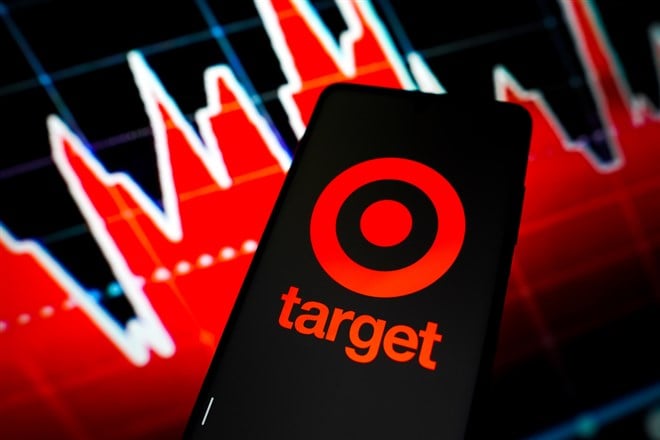
Target Corporation (NYSE: TGT) shoppers are familiar with Bullseye, the beloved white English bull terrier who has been on TV ads and in-store signage for more than 20 years.
A bullseye of a different breed — Wall Street price targets — may be more reason to love the embattled discount store chain.
Among the sell-side analysts that have weighed in on the company since Q3 earnings fell well short of expectations, five now have targets of $200 or more. Shortly before Christmas, Tigress Financial reiterated its buy rating and $215 target. The analyst there may be on to something.
Since slipping below $140 on December 22nd, Target shares are on an impressive nine-day winning streak. Moreover, the extended Santa Claus rally has Target up 7.5% just one week into the year, following a 36% decline in 2022.
Last year, three straight quarterly EPS misses reflected a dramatic shift in consumer spending habits. In the face of widespread inflation and rising rates, big-ticket purchases were out, and home essentials were in. Moreover, ongoing cost inflation and inventory issues led management to warn of more of the same in Q4.
But heading into 2023, Wall Street is in better spirits, even if consumers are still cautious. Here’s why the bulls see the retailer clawing its way back toward the November 2021 all-time high.
#1 Underlying Fundamentals Are Solid
Despite the macroeconomic pressures, the U.S. consumer is exhibiting resilience. Even if customers are spending less on pricey TVs and electronics, growth in Target foot traffic has been healthy. That’s because Target stores are still a go-to stop for budget-friendly food, staples, clothing and home goods. As economic conditions improve, discretionary spending on the more expensive stuff should normalize to complement steady spending on the essentials.
In the Q3 call, CEO Brian Cornell said that the company held or gained market share in all five merchandising categories. Food and beverage gained share weekly during the period en route to low double-digit sales growth (which exceeded inflation, no less). In addition, the key beauty category notched “mid-teens” sales growth, showing Americans are still spending to look good even as recession pressures mount.
More importantly, Target is outperforming the competition businesswide. So even if the Q4 report is disappointing, such broad-based growth is reason to be optimistic heading into 2023.
#2 Comps Will Be Easier in 2023
Target is projected to record EPS of $6.79 for fiscal 2023 (calendar 2022). This would be exactly half the profits posted in the year prior — and the main reason why $100 has been slashed from the share price over the past year.
The good news is that the forgettable year will be in the books when Target reports Q4 results in late February. And with the new benchmark set low, this year’s quarterly reports will face some favorable comparisons. If Target can exceed the lower bar, confidence in the management team (and the American consumer) will be restored, and institutional money could quickly flow back into the stock. This may already be happening.
For fiscal 2024 (calendar 2023), Wall Street expects EPS to be in the $9.00 to $10.00 range. If Target can hit this mark, it will return profitability to pre-pandemic levels. Ideally, it beats the bogey to demonstrate an ability to grow beyond the pre-stockpiling days.
This year’s results should get a boost from reduced promotional activity, fewer markdowns and lower supply chain costs. Bottom-line performances should also be helped by Target’s new operational efficiency program targeting efficiency gains of $2 billion to $3 billion.
#3 Long-Term Growth Drivers Look Good
On top of efficiency gains, Target should continue to benefit from wallet share gains. This portion of consumer spending goes to Target stores and e-commerce. In addition, the ongoing struggles of Bed Bath & Beyond, the Gap and various department stores are positives for more money heading to the bullseye.
Last week, Bed Bath & Beyond said bankruptcy is among the options to resolve its bleeding financial statements made worse by a dismal holiday shopping season. If 700-plus Bed Bath & Beyond stores close, many more shoppers could be headed to Target for comforters and towels.
Another area with growth potential is the online business. Target.com sales account for less than 10% of total sales. This is a tad from the pre-pandemic era and up from less than 5% in fiscal 2017. But it also leaves room for expansion, with online shopping trends expected to trend higher throughout the remainder of the decade.
Regardless of the economic backdrop, modern consumers love two things: 1) good prices and 2) convenience. Target offers both. Its stores are everywhere, and curbside pickup and delivery meet shoppers’ basic needs. This should keep Target and its mascot relevant for many (dog) years to come.














